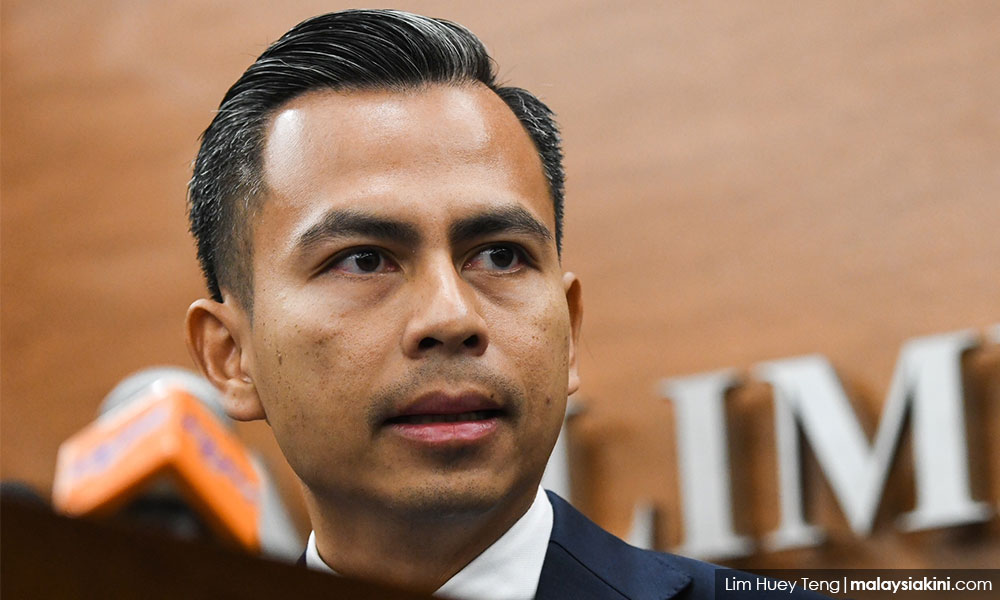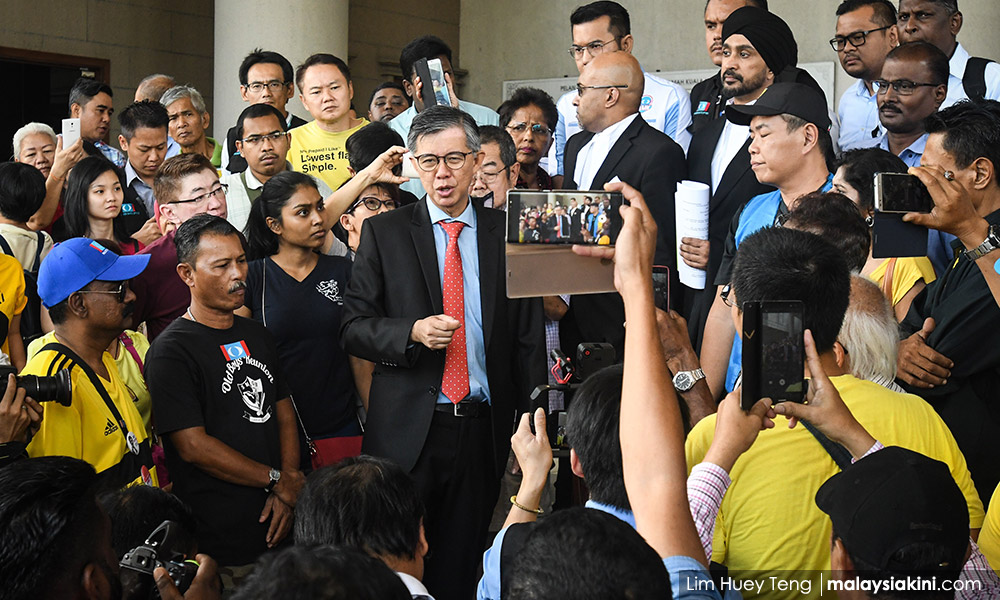
Prime Minister Dr Mahathir Mohamad and his government's approval rating may have taken a beating, but several Pakatan Harapan leaders believed that the ruling coalition must stay the course.
While the main reason for this was dissatisfaction over how the government was handling the economy, Harapan leaders interviewed said this was a matter with no quick fix and reforms will always be a painful process.
PKR communications director Fahmi Fadzil said, for instance, the government had moved to help ailing major institutions such as Tabung Haji and Felda.
"I believe some of the fruits of these policies will take time, especially those that are economic in nature.
"I think what we are seeing now is the principle shown by Putrajaya that it is prepared to do what needs to be done to correct the fundamentals of the system.
"Again, you can’t see immediate gains from these very important first steps," said the Lembah Pantai lawmaker.
According to the Merdeka Center survey of 1,200 respondents, Mahathir's approval rating as prime minister is 46 percent, down from a high of 83 percent last year. His government's approval rating was only 39 percent.
Satisfaction over the handling of the economy was at 40 percent, down from 56 percent last May.
Asked if this was a cause for concern, PKR vice-president Tian Chua agreed but stressed that it was not unusual for a new government's approval rating to take a hit in the first year due to the changes implemented.

"It is natural. Political parties do not expect to please everyone. If we are populist, we cannot govern.
"To me, 46 percent is considered good. Look at Jokowi (Indonesian president Joko Widodo). The first year will show low approval ratings. The opposite would be rare," he said.
‘Unpopular policies’
Another PKR vice-president, Chang Lih Kang, pointed out that voters tend to set higher standards on Harapan than BN which could therefore explain the drop in approval rating.
"Besides that, democratically elected government tend to implement unpopular policies in their first year as government," said the Tanjung Malim lawmaker.
Malaysiakini had reached out to politicians from other Harapan parties last night but had not obtained their responses to the survey at the time of writing.
When asked if Harapan should change course, all three interview subjects gave an emphatic no. And on whether Harapan should adopt more race-based policies, Chang replied "certainly not".

"People ditched BN for various reasons, including their infamous brand of racial politics. We should learn from the lessons," he said.
On the survey's suggestion that respondents were not receptive of some of Harapan's more radical policy changes, Chua said negative reactions were expected of new ideas.
"Some things that are good for society cannot be put on hold because of opposing views.
"We will encounter opposition - the Rome Statute or the abolishing of the death penalty for instance - even though we want to see these things make our society better.
"Every new policy will have opponents. We can hear it more now because the press is freer," he said.
Failure in communication
According to the Merdeka Center survey, respondents were not receptive to some of Harapan's more radical ideas, such as lowering voting age, imposing a sugar tax, abolishing the death penalty and abolishing exams for lower primary school.

Fahmi believed that if there was any changing of course, it should be on how Harapan communicates these new ideas and policies to the public.
"I have always believed in participatory and deliberative democracy, and have in Lembah Pantai conducted many townhall sessions to gather feedback and build consensus.
"The most important thing is the government needs to communicate more consistently and help the rakyat understand why it is pushing through with these policies but at the same time, we want to move away from the era of 'government knows everything'.
"I believe the government can do more to listen to voters and engage them earlier in the policy-making process," he said.
According to Fahmi, this process is beginning to happen in Parliament through the increasing number of select committees where MPs will be able to scrutinise bills and policies in greater detail.
"I believe we can further widen this to our constituents, and hopefully we'll be able to make better policies together," he said. - Mkini



No comments:
Post a Comment
Note: Only a member of this blog may post a comment.